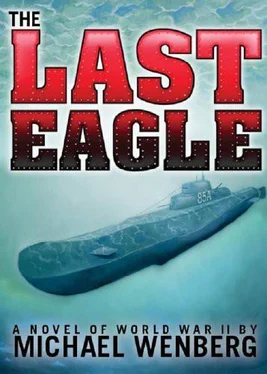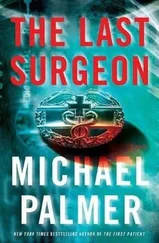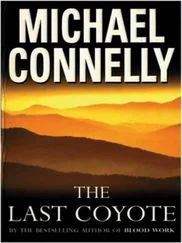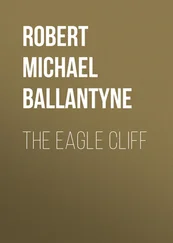Dönitz waved his hand aside. “I can see that.” He picked up the magnifying glass, hovered it over the photograph. “She looks undamaged.”
Strasser nodded. “But look here.” He pointed at two vessels just entering the harbor’s outlet to the sea, a channel framed on either side by the two half mile long rock jetties. “She will quickly overtake these two. No way to get past them.”
“What did our contact at the Luftwaffe have to say.”
Strasser frowned. “I’m sorry, sir. Shortly after these photographs were taken, another mission was ordered.”
“Who gave the order?” Dönitz asked harshly.
Strasser stepped back, tugging nervously at his sleeves. “That sir, is unclear.”
Dönitz’s lips narrowed. Of course, Göring wouldn’t be stupid enough to give the order himself. And if he did, what would the Fuhrer do to him? Nothing, of course. Who would regret the loss of an enemy vessel?
Dönitz gestured curtly toward the door. The analyst was dismissed. After he was gone, his aide peered into the Dönitz’s office.
“Get me a meeting with Grossadmiral Raeder, as soon as possible.”
The aide disappeared.
Dönitz drummed his fingers on the surface of the photograph. It was still unclear what had happened to the Eagle . If Ritter and his men were not on the Eagle , the mission had failed. If the submarine had been destroyed, it was a matter he would bring up with Göring in private.
“ Grossadmiral Raeder has a moment now, sir,” Dönitz’s aide said.
Dönitz stood, smoothed down the front of his jacket. He picked up the photographs on his desk, and then crossed the room. Time to tell the head of the Kriegsmarine about his plan. Perhaps he could do something about Göring.
Five hundred and thirty kilometers to the west, there was a knock at the door of a cottage in Chartwell, England. Winston Churchill glanced up from his breakfast plate, a piece of sausage dangling precariously from the tip of his fork.
Across the table, a former Scotland Yard detective by the name of Thompson dabbed at the corners of his mouth with his napkin. Without a word, he picked up his pistol from the table, and went to answer the door.
Thompson’s former employer estimated that there were 20,000 Nazis in England on this first morning in September. Churchill thought that number was probably too conservative, though when you were already dealing with a small army of spies, a few thousand more either way probably wouldn’t matter much. He didn’t doubt that his own murder was a standing order with every single one of them, especially now that war had finally broken out.
Churchill felt his stomach growl with protest, plopped the rest of the sausage into his mouth, and chewed with gusto. Nothing like an English banger in the morning. The previous weeks, he’d lost weight. No appetite. But now that all the waiting was finally over, his appetite had returned. Of course, he felt little consolation in the fact that he had been right about Hitler and the Germans all along. In fact, he was even more gloomy about Poland’s chances than he had been only weeks earlier. By all accounts, the morale of the Polish fighting man was at an all-time high. But they would be no match for the German’s genius with machines. And the French were unwilling to attack German positions pre-emptively. Peace activists and French politicians agreed it was all a trifle that would soon go away. Negotiation was the key. Calmer, wiser heads would prevail.
Churchill shook his head, forked some fried tomato into his mouth. A week earlier, he had met with French General Georges over lunch. The General had detailed the French and German armies strengths and weaknesses. The analysis was impressive. Then the General had warned that the Germans had a strong army and the will to fight.
When Churchill asked him if there would be war, the old general had merely sighed, and then stared at him with eyes that had already seen too many men die.
They were too comfortable, Churchill thought. Their wall of guns and concrete, their Maginot Line, it had given them the illusion of security. It would be foolish to attack the French directly. Even Churchill agreed with that. But what if Hitler chose to race around it through another country? The thought hadn’t occurred to Churchill before. “My God,” he muttered to himself with sudden realization, “that’s what he’ll do.”
He heard an exchange of words at the door. Thompson, no doubt, pistol out, demanding identification papers, though Churchill couldn’t imagine a Nazi assassin being so polite as to knock on the door first before opening fire. And if one happened to come around the back way, Churchill had his own weapon close to his side. Not quite as good a shot as Thompson, Churchill had picked a shotgun. He had it nestled like a cat on his lap.
Thompson came in first, followed by the man at the door. He recognized him as one of Chamberlain’s men. “Breakfast?” Churchill offered brightly.
The man shook his head, a lock falling across his forehead. He brushed at it absent-mindedly. “Sir, the Prime Minister would like to meet with you this afternoon,” he said.
“Very well,” Churchill replied. He had been expecting this. “We’ll leave right now.”
“Oh, yes, almost forgot.” The aide was fiddling with the AWOL hair again. “He wanted me to pass along some news that he thought you might appreciate given your longstanding interest in matters of the high seas.”
“Yes, yes?” Churchill said impatiently.
“Our man in Gdynia reports that the last Polish submarine in port—the Eagle —has managed to escape.”
A broad smile split Churchill’s pug face. “Bully them!” he exclaimed. “On such a dark day we can take heart from at least one bright spark.”
Churchill stuck a fresh cigar in the corner of his mouth. He had no illusions about the conflict with Germany. The very survival of England would be in the balance, of that he was certain. He was ready for the fight to come. In some sense, his whole life and career had been pointing to this moment. He would serve King and country in whatever way the prime minister deemed fit. “Let’s go, Thompson,” he growled, “and don’t forget your pistol.”
Sieinski lay on his bunk, one leg up, his arm flung across his face. A pan on the floor was completely filled with vomit. Even if he had been so inclined, he was too weak to dispose of the former contents of his stomach on his own. That’s why God made some men seaman, he thought wryly to himself.
He had tried to eat. Some eggs and potatoes whipped together by the cook. It had stayed down just a moment, then come back up again. He had retched until his stomach was completely empty of not only the most recent attempt at a meal but of what had remained of the banquet he had enjoyed the night before. Memories of it were already disappearing like a spring snow.
Sieinski tried a sip of tea, sweet and tepid, successfully fought back a spasm and tried another sip. He needed something. He was almost too weak to walk, and his head felt very much like the time he had been struck by a polo mallet that had slipped out the hands of one of his opponents. Accident. At least, that’s what the man said later on, when he stopped by Sieinski’s hospital bed to apologize. Sieinski had never believed him.
“Sir?”
“Enter,” Sieinski groaned.
Stefan slipped into the captain’s cabin, wrinkled his nose when he noticed the foul soup on the floor.
“We’re out of the harbor,” Stefan said sourly, trying to talk and hold his breath at the same time.
“We haven’t dived yet?”
“No need. We’re in a fogbank…”
Читать дальше












